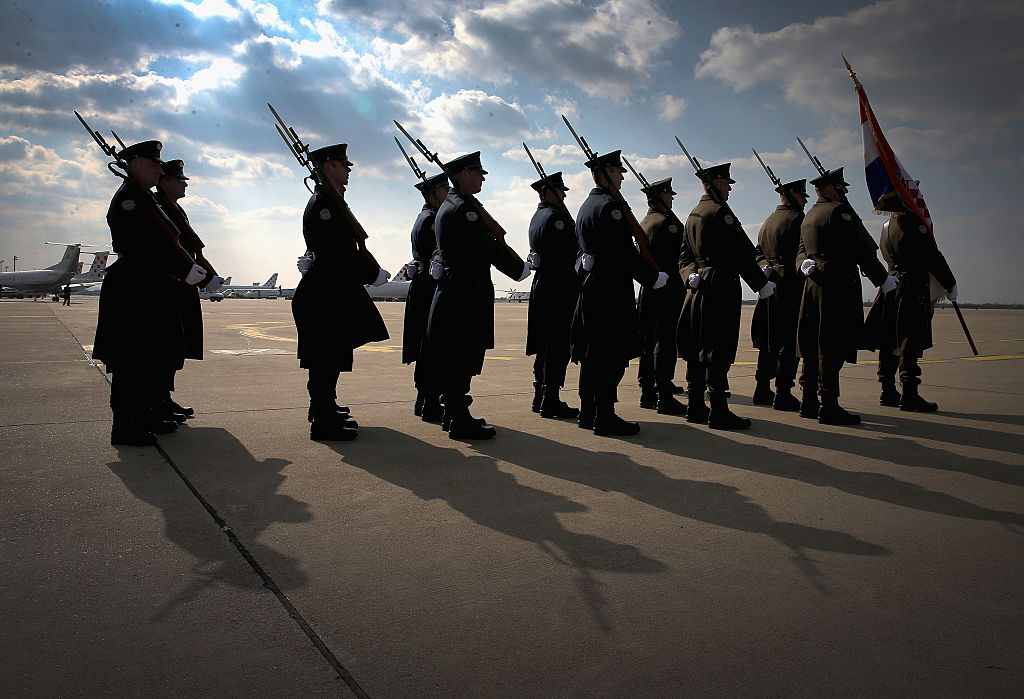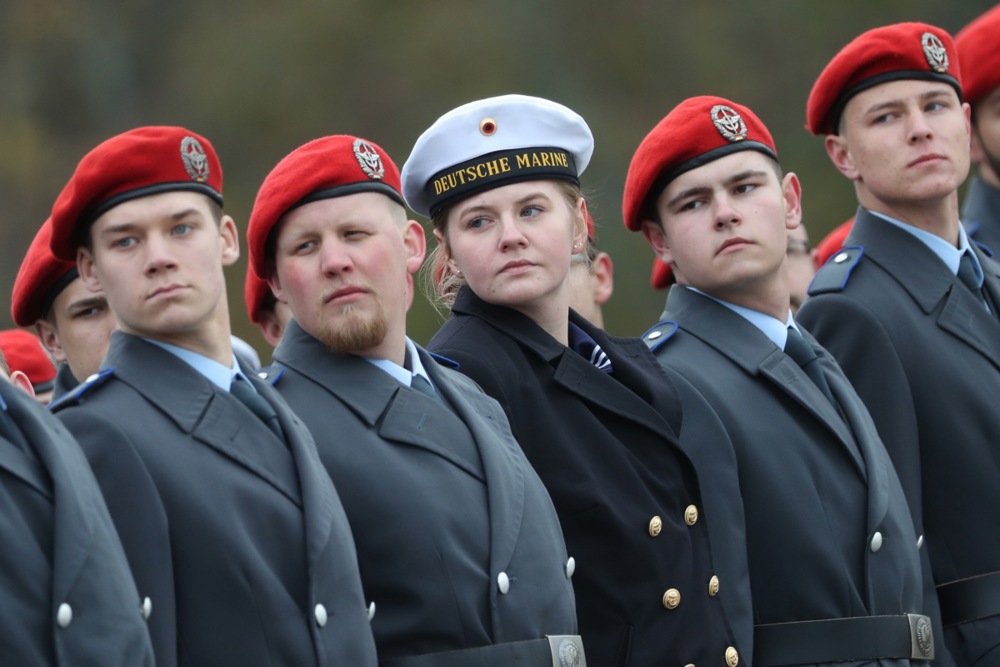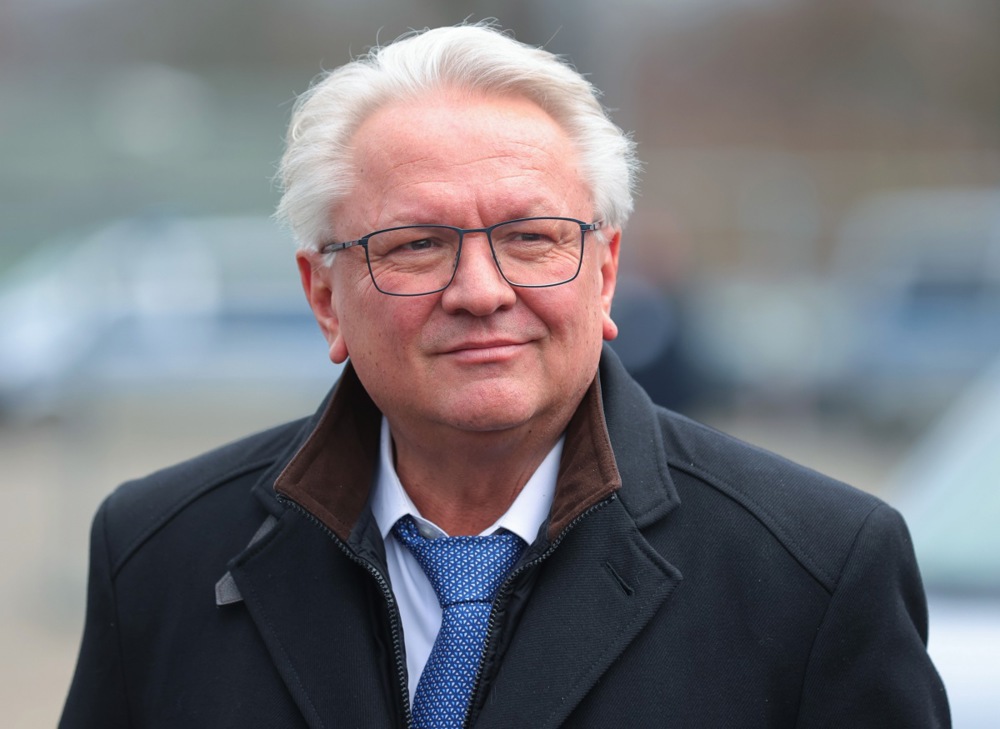British military support for Ukraine has “constrained” its ability to train its own soldiers as it has reduced the availability of facilities to do such, a report by the National Audit Office (NAO) has found.
According to the auditors, there was a need to “balance Ukraine’s needs and the UK’s strategic interests”.
Since Russia invaded Ukraine in 2022, the UK has been one of the staunchest supporters of Ukraine, having already provided £7.8 billion (€9.24 billion) in military support.
Next to money and weapons, it also has been providing training to Ukrainian soldiers under “Operation Interflex”, aimed at improving the safety and effectiveness of troops on the battlefield.
“British Army units which bid for time at the training sites in 2023 had their bids rejected eight times more often than in 2019, because sites were not available,” the auditors concluded in their report, published on September 11.
More than a quarter of the British Army’s facilities are being used for training Ukrainian soldiers and the UK Ministry of Defence (MoD) acknowledged that this constrained the army’s capacity to train its own troops.
Reacting to the auditing report, a MoD spokesman stated in The Telegraph: “All UK forces have access to the relevant training required to be held at readiness to protect the UK and meet our NATO commitments.
“But we welcome the NAO’s report, which recognises that Ukrainian troops are better prepared to defend their country from Russia’s illegal invasion thanks to the UK providing training.”
Recently, UK defence secretary John Healey announced Operation Interflex would continue throughout 2025.
‘Operation Interforge’, the specialist programme for Ukrainian marine forces, was moved to the Netherlands in February 2024. The MoD told the auditors that the use of training facilities in the UK was threatening to compromise the Royal Marines’ own needs.
Another issue for the British forces related to the donation of military equipment. Next to rapidly procuring equipment for Ukraine, the MoD has donated £171.5 million (€203,04 million) in equipment from UK stockpiles.
Yet, since mid-2023, it has sharply cut donations, citing unacceptable risks to the UK’s combat readiness.
“To address concerns over the UK’s military readiness, MoD has placed contracts worth almost £1 billion (€1.18 billion) to replenish equipment donated from UK stockpiles and estimates the total cost of replacing donated equipment as £2.71 billion. (€3,21 billion),” according to the report.
Donated army equipment is often replaced with newer and more advanced technology, making the cost to replenish stockpiles significantly higher.
Gareth Davies, head of the NAO said: “In response to Russia’s invasion of Ukraine the UK sought to provide support quickly, through less structured management processes. As the war has progressed, the MoD has learnt lessons, establishing a more routine approach for the £7.8 billion (€9.23 billion) of military support it is providing.
“As the Ministry of Defence plans its future support for Ukraine, it must continue to balance the UK’s strategic interests with maintaining the UK’s own military capabilities. This includes making sure there are appropriate stocks of equipment and sufficient training provision for UK forces.”
In July, senior British Army officer General Sir Patrick Sanders warned that the UK’s ability to defend itself in the event of a missile attack was “weak” and urged the Government to spend more on defence, including on weapons.
He added that the UK’s donation to Ukraine of 14 Challenger 2 tanks had made Britain “temporarily weaker” as it had left a “gap in our armoury”.
Hours before the publication of the auditor’s report, the UK foreign secretary David Lammy announced the donation of more than £600 million (€710 million) in military support to Ukraine.
UK Prime Minister Keir Starmer committed to £3 billion (€3.55 million) a year of military support for Ukraine for as long as needed earlier this year.
The Armed Forced of Ukraine (AfU) has received a wide range of training on British soil, from basic infantry for new recruits to advanced leadership and instructor courses for experienced personnel.
“The primary training effort, ‘Operation Interflex,’ exceeded its target of training 40,000 Ukrainian troops by July 2024, already reaching 42,050,” the report noted.
It added that an overwhelming majority of Ukrainian fighters said “they felt they were better equipped to survive on the battlefield”, while some feedback indicated possible improvement in the training, adapting it to the reality on the ground in Ukraine. In particular, drone training appeared to be lacking.





